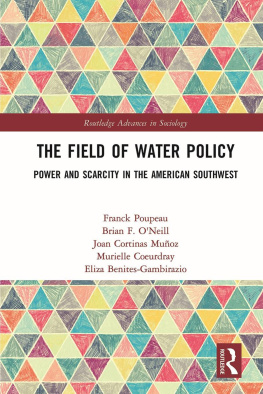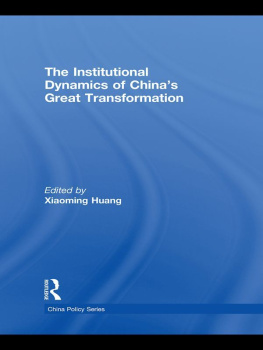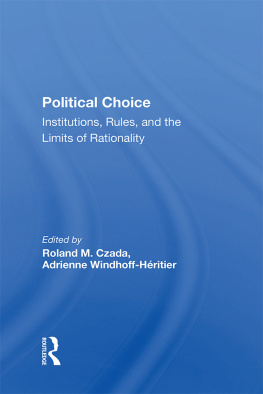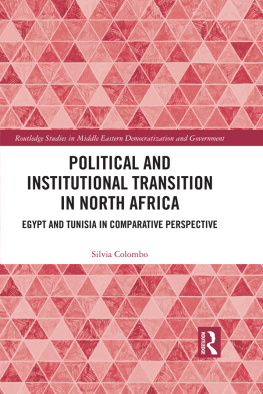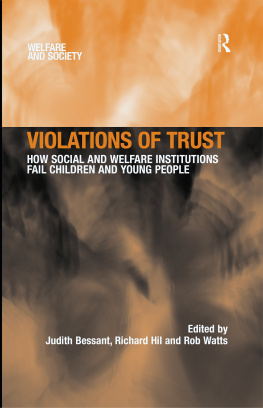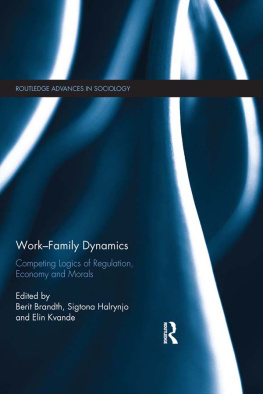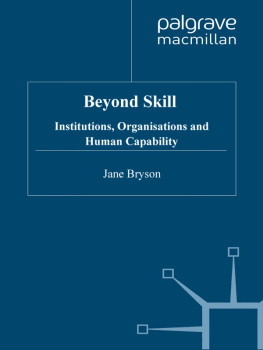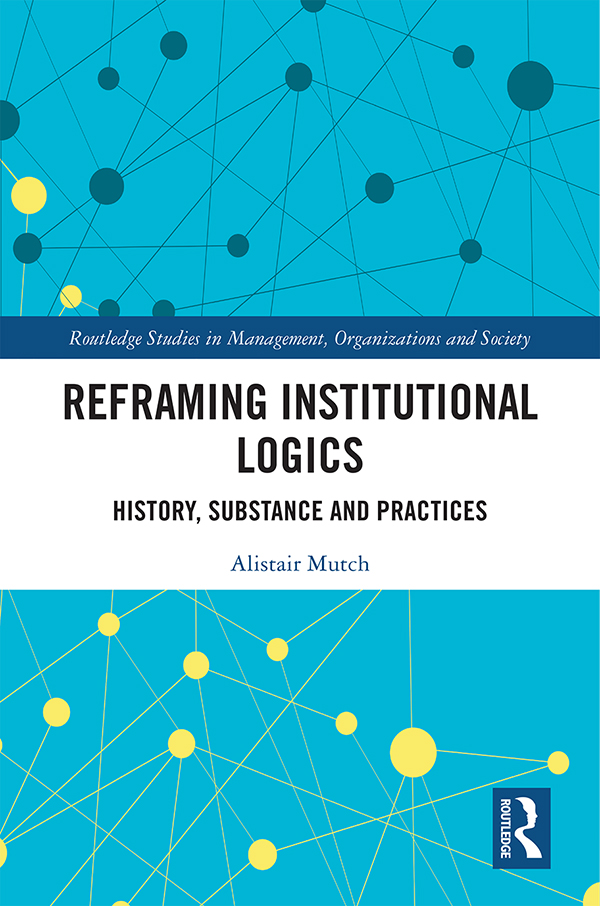Contents
Reframing Institutional Logics
How are we to characterise the context in which organisations operate? The notion that organisational activity is shaped by institutional logics has been influential, but it presents a number of problems. The criteria by which institutions are identified, the conflation of institutions with organisations, the enduring nature of those institutions and an exaggerated focus on change are all concerns that existing perspectives do not tackle adequately. This book uses the resources of historical work to suggest new ways of looking at institutional logics. It builds on the work of Roger Friedland who has conceived of institutional logics being animated by adherence to a core substance that is immanent in practices. Development of this idea in the context of organisation theory is supported by ideas drawn from the work of the social theorist Margaret Archer and the broader resources of the philosophical tradition of critical realism. Institutions are seen to emerge over time from the embodied relations of humans to each other and to the natural world on which they depend for material existence. Once emergent, institutions develop their own logics and endure to form the context in which agents are involuntarily placed and that conditions their activity. The approach adopted offers resources to bring society back in to the study of organisations.
The book will appeal to graduate students who are engaging with institutional theory in their research. It will also be of interest to scholars of institutional theory, of the history of organisations and those seeking to apply ideas from critical realism to their research.
Alistair Mutch is Professor of Information and Learning at Nottingham Trent University. He has published widely on organisation theory and history. Educated at secondary level in both England and Scotland, he obtained a joint honours LLB in jurisprudence and history from the University of Dundee in 1976. Exposure to the distinctive educational, religious and legal traditions of Scotland, which has continued to influence his later work, was followed by the study of history at the University of Manchester, from where he obtained both an MA and a PhD, the latter being for a study of the nineteenth century rural history of Lancashire. Following ten years experience as an accountant with British Telecom, he joined NTU in 1990, where he has worked ever since. His Religion and National Identity: Governing the Church of Scotland in the Eighteenth Century (Edinburgh, 2015) brought a novel and innovative approach to the study of religious governance practices, one that has implications for the study of the relationship between religion and economic activity.
Reframing Institutional Logics
History, Substance and Practices
Alistair Mutch

First published 2019
by Routledge
711 Third Avenue, New York, NY 10017
and by Routledge
2 Park Square, Milton Park, Abingdon, Oxon, OX14 4RN
Routledge is an imprint of the Taylor & Francis Group, an informa business
2019 Taylor & Francis
The right of Alistair Mutch to be identified as author of this work has been asserted by him in accordance with sections 77 and 78 of the Copyright, Designs and Patents Act 1988.
All rights reserved. No part of this book may be reprinted or reproduced or utilised in any form or by any electronic, mechanical, or other means, now known or hereafter invented, including photocopying and recording, or in any information storage or retrieval system, without permission in writing from the publishers.
Trademark notice: Product or corporate names may be trademarks or registered trademarks and are used only for identification and explanation without intent to infringe.
Library of Congress Cataloging-in-Publication Data
Names: Mutch, Alistair, 1954 author.
Title: Reframing institutional logics : history, substance and
practices / Alistair Mutch.
Description: New York, NY : Routledge, 2019. |
Series: Routledge studies in management, organizations
and society | Includes bibliographical references and index.
Identifiers: LCCN 2018034614
Subjects: LCSH: Organizational sociology. | Social institutions.
Classification: LCC HM786 .M87 2019 | DDC 302.3/5dc23
LC record available at https://lccn.loc.gov/2018034614
ISBN: 978-1-138-56911-9 (hbk)
ISBN: 978-1-138-48235-7 (pbk)
ISBN: 978-1-351-05815-5 (ebk)
Typeset in Sabon
by codeMantra
For Kath, with love
My first engagement with institutionalist theory in organisation studies was hardly propitious. After attending a discussion group on the topic at the annual colloquium of the European Group for Organisation Studies (EGOS of which more below), I came away with the feeling that it was not for me. The failure, in my eyes, to be clear about what an institution was and the focus on agency and change seemed to jar with the framings I had brought with me from both social theory and history, especially as shaped by the traditions of the British Marxist historians and the proponents of critical realism. However, further reading exposed me to the work of Roger Friedland and Robert Alford whose 1991 essay posed ideas that seemed to me both out of kilter with the mainstream of institutional theory and likely to be more productive. I was then privileged to speak on the same panel as Roger at an event in Cardiff University, and I have enjoyed conversations with him in a variety of locations, conversations that were always challenging, interesting and thought provoking. Our interactions have been hugely helpful to me but, of course, he bears no responsibility for the direction I have taken.
This book represents an effort to align some of the ideas I have taken from his work with not only ideas in organisation theory but also, crucially, with the framework provided by the inspiring work of Margaret Archer. Again, I have been privileged to work on joint projects with Maggie and to engage in conversations that have helped me develop the ideas presented here. My understanding of her work and the broader critical realist tradition have been helped, in particular, by the series of seminars organised under the auspices of the Economic and Social Research Council in the UK. Here I thank those involved, especially Tony Lawson, Paul Edwards, Steve Vincent and Joe OMahoney. The latter works with a group of colleagues at Cardiff University whom I consider as friends as well as influential interlocutors: Rick Delbridge, Mike Reed and Tim Edwards. Collective and collegial endeavour has been vital to the development of my ideas, even if my writing tends to be a solitary affair. In particular, discussions at the standing working group on organisation history at EGOS over many years have been vital to the development of the ideas presented here. All of the participants played their part, but I want to thank in particular those who have organised the meetings and related events: Stephanie Decker, Mick Rowlinson, Dan Wadwhani, Lars Engwall, Behlul Usikiden and Mathias Kipping.
Conversations over the years have also helped with specific parts of the book, often seeding ideas. For example, the explanations of the mysteries of Canadian sports by Bill Foster and Roy Suddaby have influenced the attention paid here to the distinction between clubs and franchises in organised sports (and the discussions about progressive rock were also welcome!). Elke Weik helped me to think about the role of feelings in the acceptance of logics. My work and conversations with Alan McKinlay on Scottish diaries and accountability helped in my development of the wider ideas presented here. Hugh Willmott not only was a helpful, if challenging, editor for a journal article that first collected together and crystallised some of the ideas presented here, but also has been encouraging and supportive at various stages of my career. I am grateful to Duarte Pitta Ferraz for facilitating my exposition of some of these ideas at Nova Business School in Lisbon, Portugal, as well as for his friendship.


